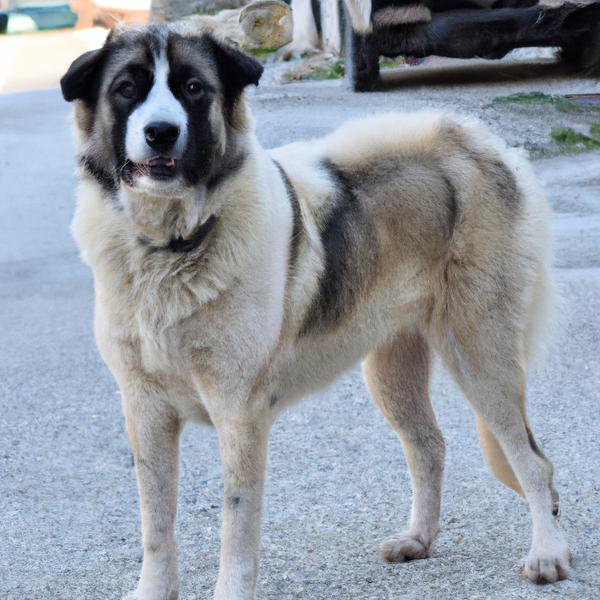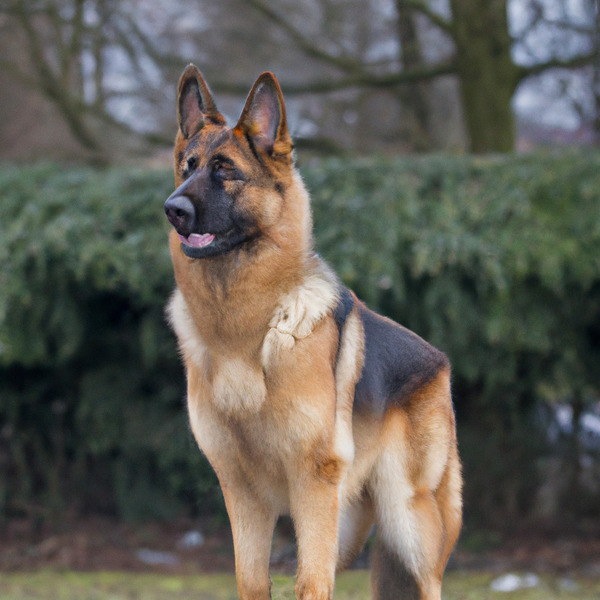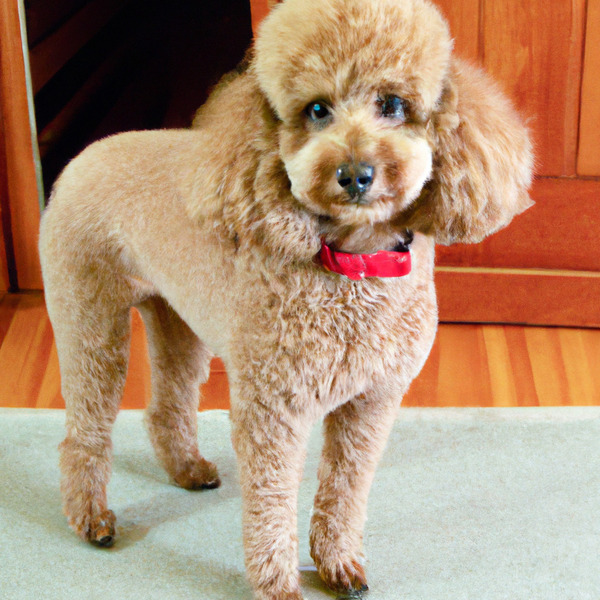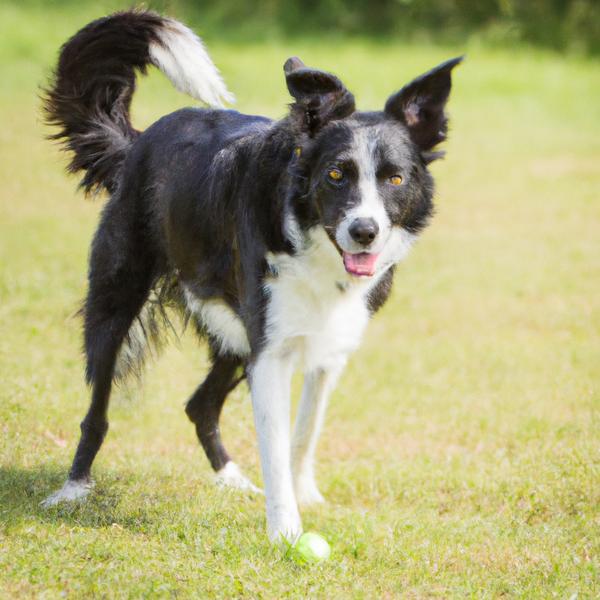
Bolonoodle Breed Information & Characteristics
Hypoallergenic
Are Bolonoodles Hypoallergenic?
While no dogs are truly 100% hypoallergenic, Bolonoodles are about as close as it gets, making them an ideal pet if you are an allergy sufferer.
Temperament
What is a Bolonoodle personality? What are Bolonoodle dogs best known for?
Active
Playful
Alert
Intelligent
Loyal
Devoted
Trainable
Calm
Faithful
Easygoing
Instinctual
Earnest
Willing
Serene
Shedding Level
Are Bolonoodles heavy shedders? How Much Does a Bolonoodle Shed?
Bolonoodle will shed a negligible amount of hair. Some owners say that they do not shed, but that is not true. But the amount of shedding can be rather light than other dog breeds. If you do not want to deal with the hairs flying around in your home, then this breed is a perfect choice for you.
Watchdog Ability
What is the watchdog ability of a Bolonoodle dog?
The Bolonoodle dogs are average watchdogs. If they sense something different, this breed will alert their owner.
Origin
Where do Bolonoodles come from?
United States
Ancestry
What are Bolonoodles descended from?
Poodle and Bolognese
Breed recognition
What organizations or kennel clubs recognize/register the Bolonoodle breed?
ACHC = American Canine Hybrid Club
DBR = Designer Breed Registry
DDKC = Designer Dogs Kennel Club
DRA = Dog Registry of America, Inc.
IDCR = International Designer Canine Registry®
Date of Birth
When were Bolonoodles first bred? How old is the Bolonoodle breed?
2005
Litter Size
How many puppies can a Bolonoodle have in a litter? How many puppies can a Bolonoodle have in her first litter?
A Bolonoodle can have a litter of 2-4 puppies on average. However, it's worth noting that the size of the litters can vary greatly. Factors that can influence litter size include the health of the mother, breeding history, and genetics.
Adaptability
Bolonoodles are known for their adaptability and versatility, they are capable of adapting well to a wide range of lifestyle changes and living environments. They are a highly adaptable breed, and make great companions for families and individuals of all lifestyles.
Health Issues
Do Bolonoodles have a lot of health problems?
The Bolonoodle is generally considered to be healthy. However, like all breeds, they are susceptible to certain health issues and it is important to keep an eye out for them and address them with your veterinarian as needed.
Major Concerns
What are the major health concerns to be aware of when owning a Bolonoodle?
Patellar Luxation
Progressive Retinal Atrophy
Retinal Dysplasia
Mitral Valve Disease
Obesity
Minor Concerns
What are the less significant issues to keep in mind when it comes to Bolonoodles?
Sebaceous Adenitis
Urolithiasis
Hip Dysplasia
Skin Allergies
Diabetes
Occasional Tests
What are the occasional tests recommended for Bolonoodle breed?
Eye
Hip
Knee
Heart
Blood And Urine Protein Screens
Physical Examination
Energy
Do Bolonoodles have a lot of energy?
Bolonoodles are known for their high energy levels, so if you're looking for a more low-key dog, this breed may not be the best choice.
Social Needs
Do Bolonoodles need socialization? How social are Bolonoodles?
Bolonoodle have very high social needs. These needs include regular mental and physical stimulation, a job or purpose, and companionship. They thrive in environments where they have a lot of interaction with humans and other dogs.
Exercise Needed
How much exercise should Bolonoodles get?
The Bolonoodle dog requires a moderate amount of physical activity to maintain a healthy lifestyle. These breeds are ideal for people who have a moderate amount of time to devote to their pet and enjoy regular physical activity themselves. They also make great family pets as they have the energy to keep up with children and the temperament to be great companions.
Sleeping Need
How much sleep should a Bolonoodle have? Do Bolonoodles sleep a lot?
The Bolonoodle breed is known for its moderate energy levels and normal sleep patterns, typically sleeping around 12-14 hours per day.
Tendency to Bark
How much does it bark?
Bolonoodle dogs tends to bark less frequently than most other dogs. They tend to be quieter and less vocal than other breeds. They may only bark when necessary, such as to alert their owner of something or to communicate something. They do not bark excessively, and may not bark as much as other dogs in certain situations, such as when they are left alone.
Mouthiness
Are Bolonoodles mouthy?
Roaming urge
What is the likelihood of a Bolonoodle running away? Do they have a tendency to explore or wander frequently?
Prey Drive
Do Bolonoodle dogs have a high prey drive?
Past times
What do Bolonoodles enjoy doing? How do I keep my Bolonoodle busy?
Chase, Visit, Walk, Tricks, Movies, Cuddling
Tolerance of being left alone
Grooming
What level of grooming should be provided for a Bolonoodle?
The Bolonoodle is a breed of dog that requires a significant amount of grooming. They will also require regular trims, and a professional groomer's help is often necessary to keep their coat in good condition. They may also need regular baths to maintain their coat and skin.
Intelligence
How intelligent is a Bolonoodle?
The Bolonoodle breed is considered highly intelligent and very easy to train.
Sensitivity Level
How sensitive is a Bolonoodle dog?
This dog breed is particularly attuned to its environment and the emotions of those around it. It can be easily overwhelmed by loud noises, new environments, and unfamiliar people or animals. This dog is best suited for individuals or families who are patient, gentle, and understanding of its sensitive nature. It may also benefit from a calm and stable home environment, with a consistent routine and plenty of positive reinforcement training.
Affection Dependance
Are Bolonoodle dogs affectionate?
Apartment Friendly
Do Bolonoodle do well in apartments? Are Bolonoodles good indoor dogs?
Bolonoodles are known for being excellent apartment dogs. They are fairly active indoors and will do okay without a yard.
Child Friendly
Are Bolonoodles good with kids? Are Bolonoodles good around children?
A Bolonoodles typical characteristics indicate that this breed of dog is an ideal companion for kids and makes them family pets. Their gentle and protective nature and calm mentality make them gel along quickly with the younger humans
Senior-friendly
Are Bolonoodles good for elderly?
Cat Friendly
Are Bolonoodles good with cats? How friendly Bolonoodles are toward cats?
Bolonoodles are very cat friendly dogs. They generally make good companions for cats.
Dog Friendly
Do Bolonoodle dogs get along with other dogs? Are Bolonoodles OK with other dogs?
Bolonoodles are very friendly towards other dogs. This breed typically have a happy and affectionate temperament around dogs.
Pet friendly
How do Bolonoodle dogs interact with other pets? Are they considered pet-friendly?
Stranger Friendly
Are Bolonoodles friendly with strangers?
Bolonoodles are very friendly around strangers.
Playfulness
Do Bolonoodles like to play? Are Bolonoodles playful?
The Bolonoodle is a playful dog. So, no matter how busy the day may get, the best thing you can do for your Bolonoodle is to make time each day to play. It can be as little as 15-20 minutes, and it will mean the world to them.
Trainability
Are Bolonoodle easily trained?
Bolonoodle dogs are known for their ease of training and ability to learn quickly, making them a popular choice for pet owners and trainers alike.
Compare Bolonoodle with other breeds

Weimaraner
Bolonoodle vs Weimaraner

Croatian Sheepsky
Bolonoodle vs Croatian Sheepsky

King Shepherd
Bolonoodle vs King Shepherd

Boston Boxer
Bolonoodle vs Boston Boxer

Poodle
Bolonoodle vs Poodle

English Foxhound
Bolonoodle vs English Foxhound

Shelestie
Bolonoodle vs Shelestie

Standard Border Schnollie
Bolonoodle vs Standard Border Schnollie

Labollie
Bolonoodle vs Labollie

Dobie Schnauzer
Bolonoodle vs Dobie Schnauzer

Mudhol Hound
Bolonoodle vs Mudhol Hound

Papi-Inu
Bolonoodle vs Papi-Inu